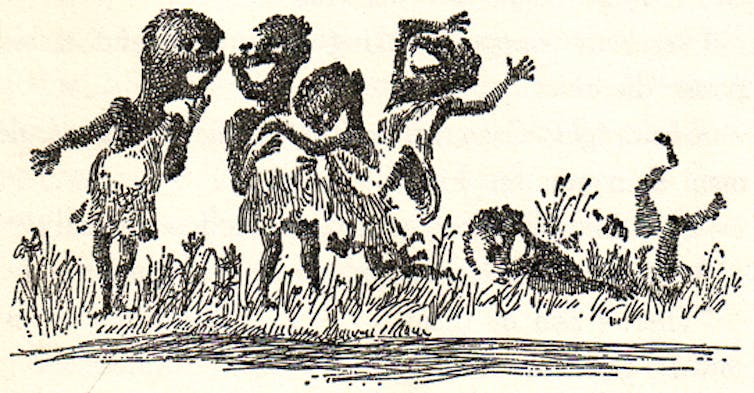Originally published at: Everyone bopmuggered by vomitous gobblefunk in censored Roald Dahl books | Boing Boing
…
Haven’t seen the new editions personally but the changes shown in the linked article seem pretty unobjectionable. Certainly didn’t strike me as “crude”.
Re-editing literature is never an attempt to show the world as it is (by its very nature, the attempt does that), it’s an effort to obscure the world as it was.
I too read the changes and, on the surface, yes, not too objectionable, but should we really go back and edit past stories / authors to make them acceptable today? Maybe a case for children stories, but, maybe not. I do feel that creative works should retain the original intent of the creator which is a reflection of their times even if it is messy by today’s standards. By that, perhaps those stories, movies, etc are no longer relevant in today’s culture but they are still relevant in a historical cultural sense.
I think Philip Pullman was right: move on. This shit’s done. Plenty of new good books out there.
While we are at it can we ditch David Williams’s derivative Dahl “bopmuggery” too?
And next, removing all the negative words and concepts from Mark Twain’s Tom Sawyer and Huckleberry Finn, long beloved of children and adult readers alike. Or how about Moby Dick, very popular with kids too in its adaptions, remove the whaling, racism, and other bits that could confuse or misguide the little tykes. Oh, and how about . . .
I just hope that someday we get a “red letter” edition of these classics, where the few remaining words from the original work are clearly identified so future censors know which ones to change.
/s
We’ve always had deracinated versions of the classics. Ones where the critical consensus ignored that the romantic lead men in Brontë novels were Black. Or, and I only read Moby Dick once years ago and it’s not really a thing outside America so maybe I’m wrong and everyone reads it as a very gay book, but I hadn’t heard that.
Honestly, it’s their work, they can do with it what they like. I don’t really care either way on this one. No one asked for it, and for the CONS to disingenuously lump this little piece of vacuous corporate spackling over the nastier parts of their old IP as “woke” leftist bull is pathetic. But I repeat myself.
I love that this archaic word is still used in the US. I know it means plaster but I believe its more recent use in the vernacular here was to mean “vomit”.
I heard that Miss Trunchbull no longer has a face like a horse. Just a face.
Yaaay for horses everywhere! /s
I have been noticing that corporate PR has been more than willing to throw us under the bus whenever some change backfires. See the excuses given for the recent D&D changes to the OGL, for example.
Then again, follow the money. The “woke left” aren’t happy about people being exploited while the reactionaries are happy as long as someone is being exploited more than they are. Capitalism is as predictable as ever, maximising profits is always the goal and we are not profitable.
The one that bothered me when I read it to my son was the one where the boy basically was poisoning his aunt or grandmother (whatever she was to him) until she shrunk out of existence.
Strange concept to give to a little kid.
The Oompa-Loompas were originally stereotyped African pygmies:
I’m very cool with that getting changed.
The newest revisions sound both unnecessary and clunky.
Do you want Rollerball? ‘Cause this is how you get Rollerball.
The wrongness of the past, as seen through todays eye, should be shown, not varnished over.
If some book is objectionable, it should be neither re-edited, nor burned, it should simply not be read and forgotten, right?
The one that struck me as overdone was editing Matilda so that she no longer reads books by Kipling and Conrad. Is the fear that mentioning these authors would lead young readers into neo-colonialism?
Though I count a book as different than say a confederate monument.
But we can watch the Jungle Book (new and old versions) and Apocalypse Now right?
Billy Budd more than Moby Dick.
Although “Billy Budd” can be seen as another dreary tale of good-versus-evil masked as a tragic gay love story, its place in gay literary history is undeniable. The novel has long been thought of as Melville’s “coming out” book even though it lived in its own closet for nearly 30 years. But it is the opera “Billy Budd” and the 1962 film that sealed its place in gay history at a time when there was little such popular culture to hold onto.
Billy Budd? I preferred the film. It’s fantastic.
The opera is great too. Britten wrote it with his partner, Peter Pears, singing the captain’s role.
ETA I do genuinely mean they are really worthwhile. I loved that film and often gave it as an example of a film better than the book. I wonder why Ustinov didn’t direct any more? I think the three of those might have been responsible for part of my liking different adaptations of something I read or saw back to back. I just started a radio adaptation of Gaslight on the way to work this morning. I only saw the US film recently (worth it for Ángels Lansbury’s saucy minx above all else) and I had meant to watch the UK one too.
Seems like they should republish the works with new author credits and maybe a “based on” or “thanks to” attribution. The author wrote the words that they wrote and it seems the utmost arrogance to change them, no matter how offensive they may be.
